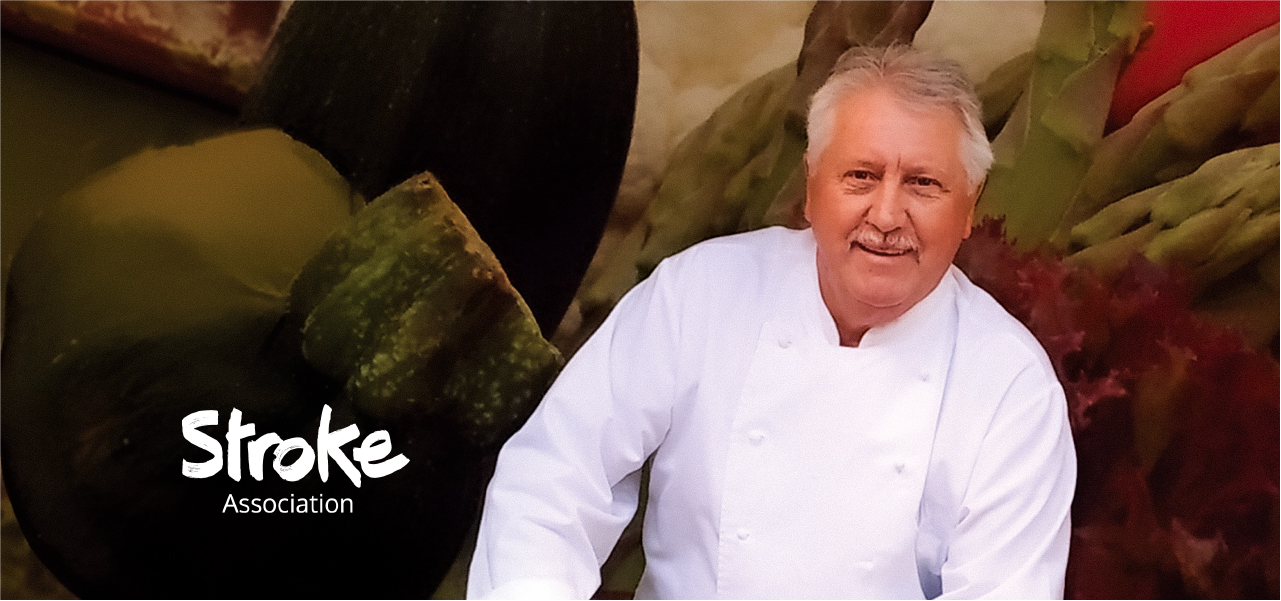16 September 2024

Stroke survivor experience: Brian Turner, CBE
Celebrity chef Brian Turner spent his entire life in kitchens, sharing his passion for food in his restaurants and on television screens. But a stroke in June 2022 changed his relationship with food and cooking forever.
Brian says: “I loved my career in the cooking world. Fundamentally, the stroke changed my career. I’ve had to find alternative ways to stay involved in the culinary world, as I can’t go to food festivals and cook in front of an audience or spend time cooking in kitchens anymore. But I look at the positives – I’m still here, and I’m still very passionate about the hospitality industry.
“Although I can’t cook professionally these days, I’m happy to say that I enjoy going out to dine at restaurants. I’m having smaller portions now, but my passion for eating has helped me in my recovery.”
Brian has made several changes to his diet. As well as smaller portions, he eats less sugar and fatty foods. But one of the biggest changes he’s made is reducing salt.
Eating high levels of sodium, the main ingredient in table salt, leads to high blood pressure and increases the likelihood of stroke. Brian learned about just how important it is to use less salt at a Stroke Association event, where our partner, LoSalt®, presented on the huge health benefits of salt reduction.
“It’s now a big part of my diet,” says Brian, who swaps out regular salt with LoSalt®, which contains 66% less sodium and can be used the exact same way, whether cooking, baking or seasoning*.
He recommends using local, fresh and seasonal ingredients to maintain flavour while using less salt.
“If they’re in season, their flavours will be much stronger, which means you don’t need to add too many elements to a dish. If you’re cooking meat, trying searing it before putting it in the oven to give it that extra bit of flavour. And of course, always remember to Season With Sense and try using reduced-sodium alternatives like LoSalt®!”
*If you take medication that affects potassium levels, for conditions including diabetes, heart or kidney disorders, speak to your GP first to check if reduced-sodium salt alternatives are suitable for you.
